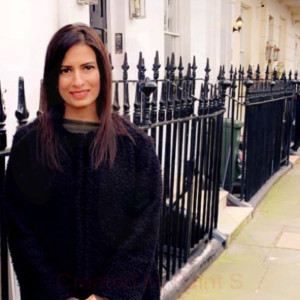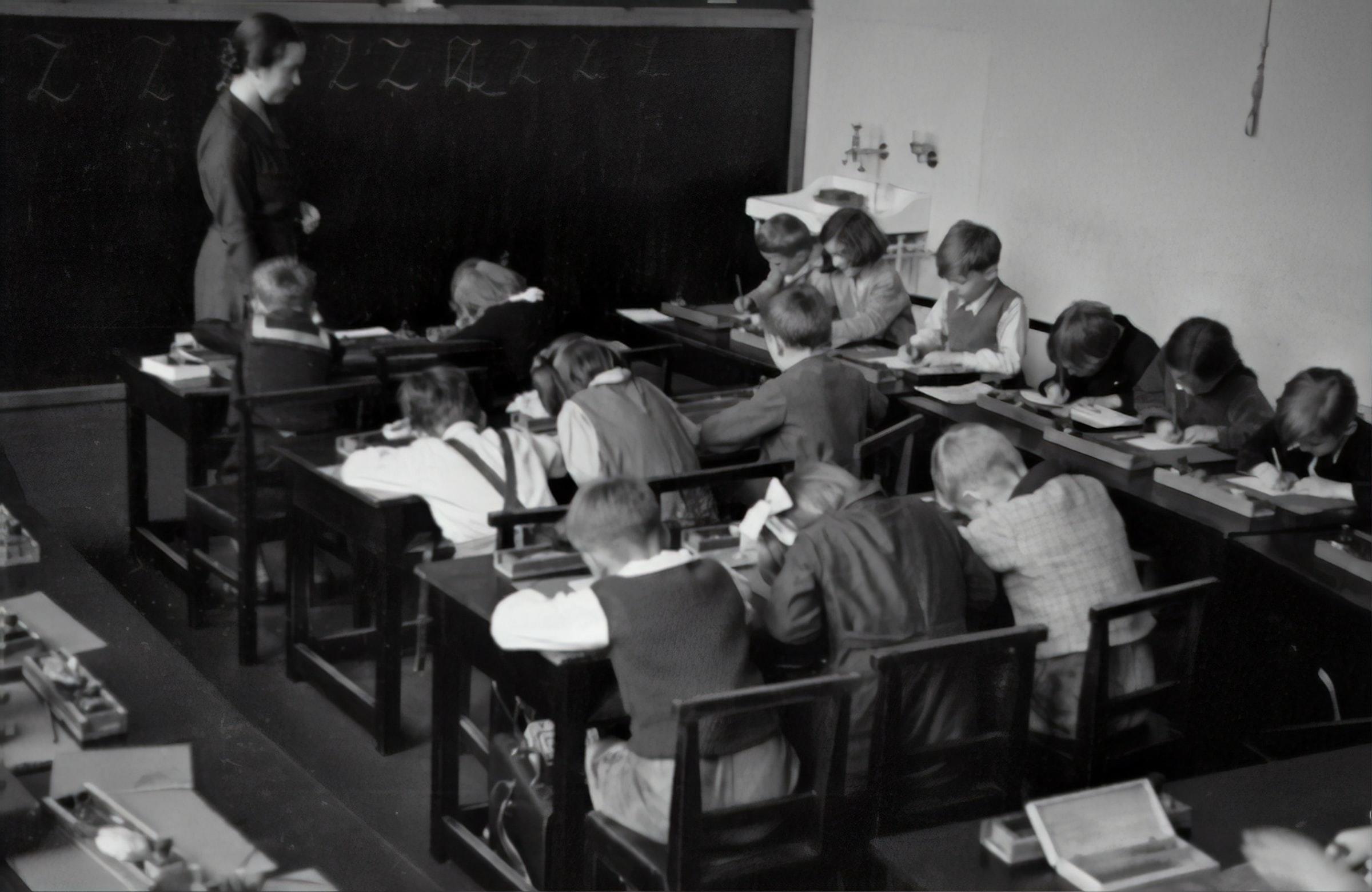Chapters
Studying another language can be very rewarding, particularly if you get the chance to use your French abroad or in your future job. Sitting GCSEs in foreign languages is downright exhilarating. Especially if you earn high marks. Just think about all the career paths suddenly open to you! To say nothing of being able to immerse yourself into other French-speaking cultures:
- you might move to Senegal to work in their booming Information Technology sector or join their football team
- you could experience life and work in Quebec, home to Canada's second-largest population
- what about exploring careers in Belgium, one of the World Trade Organisation's founding member-countries
- think about Seychelles, with its lovely beaches and booming tourist industry
- and France, our immediate next-door neighbour, currently home to a sizable British ex-pat population
Planning for a career in a French-speaking country is good. But first, you have to master the skills needed to earn high GCSE marks. It can be challenging to practise the linguistic aspects you need to pass your French GCSE. Particularly when it comes to listening and speaking; two aspects of French that language learners need to practise regularly. Luckily, there are some great study materials online that make it easy for you to prepare for your ordeal.

Vocabulary Study Tools
French vocabulary is the logical place for us to start. After all, if you know no French words, you clearly won't be able to speak any French, right? So, you have to build up your store of words. That might be easier than you think. After all, fully 29% of English words are French in origin. And another 29% come from Latin; French's root tongue.

But you probably don't have the time or energy to chase down every single English word's origins. You have so much revising to do; it's best to turn to readily available vocabulary study tools. Quizlet GCSE French is one of the most extensive catalogues of French vocabulary you could find.
Have you ever accessed Quizlet? If so, you know it is a web-based interactive learning platform. Once you create your free account, you may build study sets for any subject. You have to enter that data manually to create your personalised study banks. Once you do, you'll have access to a study tool where you can make notes while revising. Once you feel you have all of your words down pat, Quizlet provides a test utility to challenge you. And to keep your study sessions lively, you may play with your new French words.
Or you could avail yourself of the ready-made Quizlet GCSE French sets. Just like the BBC Bitesize pages, Quizlet organises its materials first by subject matter and then, by exam board. Their page currently features study sets for AQA and Edexcel, along with other exam boards. Whether you create your own or access already-prepared materials, Quizlet offers you all the same features.
The Memrise and Duolingo apps put the spaced repetition learning concept to the test. Like Quizlet, they revolve around electronic flashcards. However, unlike the other platform, Duolingo will not allow you to create your own flashcard decks. That aside, both Memrise and Duolingo have one feature that Quizlet lacks.
Even for such an easy and engaging course like Physical Education GCSE candidates often have a hard time sticking to their study schedule. Quizlet relies on you being diligent. That platform won't send you gentle reminders or concerned messages asking why you've been away for so long. Language apps like Memrise and Duolingo will.
Now, for the downside. Some of those apps' material is a little too easy for the GCSE level. Still, they offer some good resources that can aid you in mastering the vocabulary you'll see on your tests. The site is set up to encourage you to practice regularly, so it can be a nifty way to fit a little bit of study time into your day. And if you set your level to just a bit ahead of where you're at when you download the app, you may find it's pretty valuable, after all.
Listening Resources
In English, if you stress the wrong syllable, say on a word like export, you would be accused of mishandling either a verb or noun. Sometimes, using the wrong syllable stress makes what you say incomprehensible. For instance, if you stress the same syllable in 'geography' as you do in 'geographical', you'll likely get very strange looks. But you don't have to worry about mastering syllable stress in French. The French tongue is rather unique because neither tone nor inflexion gives French words their meaning.
That doesn't mean there are no homonyms in French. In fact, there are quite a few, like mettre (to put) and maître (master). Or how about oser (to dare) and osier (wicker)? To the untrained ear, these and many other French words sound exactly alike. That means that you, the Francophile preparing for GCSEs, have to work much harder on your listening abilities than, say, someone preparing for GCSE Spanish. That Romance language is all about syllable stress, even going so far as marking stressed syllables, at times.

Practising listening is crucial to earning good marks on your French GCSE. It's also a good way to immerse yourself in a French environment. Consider websites like France 24, that stream French news. Granted, the vocabulary they speak with is lofty and they talk pretty fast. But even if you don’t follow everything they say, simply hearing everyday French is a good idea. You can make a game out of picking out the bits that you do recognize. You'll be amazed at how quickly your listening abilities improve.
If you're worried French mainstream news outlets might be too far beyond your French level, turn to more targeted tools. Jour 1 Actu has a library of short video clips that cover current events; they add to it daily. Audio Lingua lets you choose your level of French, scaled to the Common European Framework of Reference for Languages (CEFRL). A1 is for absolute beginners, of course. As you're preparing to sit GCSE French, you will likely select level B1; the intermediate level.
But don't discard listening to French mainstream news altogether. Just keep it playing in the background as you do other chores. Or maybe you could listen in on your way to and from school. While you're at it, how about adding some French songs to your playlist? You'll be amazed at how quickly you'll find yourself singing along.

Speaking Practice
Earlier, we listed two pairs of French homophones - mettre / maître and oser / osier. Words such as these aren't just hard to tell apart when you hear them. They can be difficult to say properly, too. Fortunately, there's a fun way to improve your French pronunciation: tongue twisters.
These virelangues, tongue twisters in French, will teach you how to move your lips, tongue and glottis to make the proper sounds. For instance, the French U-sound doesn't exist in English. You have to learn how to position your mouth to render it correctly. This is, in fact, a critical marker for speaking French well, particularly considering that the English U-sound almost sounds like the French OU.
But will you just keep in your room, telling yourself tongue twisters? You could, but only if you record yourself as you speak them. Otherwise, you'll have no idea how well your French pronunciation is progressing. And if you did a simple internet search for French classes London, you wouldn't have to work too hard to find a French speaker to critique your French pronunciation. .
By far the better way to polish your French pronunciation is by speaking with a French native speaker. Platforms like Italki connect learners with their target language's native speakers around the world. This app lets you contact actual teachers for lessons. If you don't want formal French classes online, choose the platform's 'community tutor' option. If you already have a GCSE French tutor, why not try out Italki's language exchange program?
As much as you want to learn French, others around the world want and need to learn English. Your new online friends will help you learn to pronounce words like bouilloire and grenouille - reportedly two of the most difficult French words for English speakers to pronounce. In turn, you'll teach them how to make the English TH sound and how to say the English version of the letter R.
Italki's exchange platform is free but its other two options aren't. And as long as you're willing to pay for someone to speak French with, why not look for someone in your area who speaks French? The UK is home to more than a few bilingual and native French speakers.

BBC Revision Resources
The BBC Bitesize website is a great GCSE resource. Regardless of your study subject, Bitesize organizes its materials first by subject and then, by exam board. They even have resources for Religious Studies GCSEs! Do you know whether you'll sit AQA or Edexcel GCSE French? Though their tests are similar, it wouldn't hurt for you to avail yourself of the right Bitesize revision compilation.
BBC Bitesize is generous in its supply of study tools. Clicking on each topic box yields another menu. There, you may first revise the needed information for that section. Or you may watch the accompanying video first. Once you're done with that study module, Bitesize has a test all ready for you. This all-around revision tool can boost your French reading, writing, listening and speaking capabilities. No wonder it is GCSE students' go-to resource.
But the BBC is not done providing just yet. They produced other French materials to better prepare you for your GCSE French. You can follow one of the short courses or just pick the 0nes that focus on topics on your syllabus. The videos serve well if you want to practice your French listening, but there are also some good quizzes and games that will allow you to test your knowledge. You can also find some interesting links to French websites featuring news and interviews, which can provide you with an educational listening experience.
Past Papers and Marking Schemes
These documents are as indispensable as Bitesize. Not the least because they show you what you can expect when you finally step into the testing room. Here too, it would help to know whether you'll sit AQA or Edexcel French. But nothing says you can't download both exam boards' papers and compare them, even if you know which test you'll sit.
You should also compare them to Bitesize. That's because no revision resource is complete; even Bitesize leaves some information out. You'll find proof of that in the exam boards' examiner reports, where you'll find a summary of past students' performances. This report goes through the GCSE French test question by question, highlighting what students did well and what they could have done better. They also emphasise what future students should focus on if they want to improve their marks.
Your exam board's Examiner Report should be the first resource you draw on. Knowing exactly what's expected of you and where other students lagged will guide you in outlining your review strategies. Paper by paper and question for question, you'll learn each challenge's intent. Soon, you'll master how to meet them all. Incidentally, you should do the same for every GCSE you'll sit, from Art and Design to Physical Education.

Other French Learning Resources
Having scads of study tools at your disposal can be as overwhelming as staring at the ton of stuff you have to learn. We had to sort and categorise study resources. That way, we hope you can pare your study tool arsenal down to exactly what you need to improve each language aspect.
Still, some GCSE help defies classification. They are either all-around GCSE French study materials like Bitesize or they're helpful appendices, like dictionaries targeted to GCSE-level French. You might think of them as the Pound World, bargain bin of GCSE French. You have to go through them all to find your treasures. In that spirit, here goes.
GCSE.com has some handy tips on how to tackle each paper. They also have pages recapping verb tenses, as well as adjectives and adverbs. If you want to review these concepts or boost your study, this is a good place to start.
To test yourself, the S-cool website has some great tools. Like Quizlet, they are interactive. Rather than just giving you notes to review, the S-cool encourages you to answer questions as you study. They make it easy for you to see how well you are doing. There is also a section on study habits to help you prepare for the different sections of your GCSE French.
French in a Click offers review material designed with the GCSE curriculum in mind. Their core vocabulary section and the interactive dictionary are particularly useful. But there are also plenty of games and guidance for the different topics you will cover in class.
GetRevising is a sub-site to The Student Room. Those clever web page designers have created a customisable tool for you to narrow your search for GCSE French materials to exactly what you need. You'll filter your searches by which board you'll sit - AQA, Edexcel... or you can opt for all the exam boards. For AQA alone, you'll be treated to over 3 000 papers and tools.
Many of the sites mentioned in this article feature games or quizzes that allow you to test your French abilities. But there are also a few sites that focus mainly on these kinds of activities rather than on teaching topics covered in the GCSEs. Working these into your study plan can be a good way of keep active in your studies.
Jeu de l’oie has games designed for French speakers of various levels. Polar FLE lets you take part in a murder mystery. You deploy your reading and listening skills to follow the story, testing yourself with various activities along the way. Those sound a whole lot more engaging than my resources for GCSE Art and Design!

























Hi Brentyn,
I am trying to access the resources you are suggesting, but a lot of them are not working anymore. Do you have alternatives?
Thanks a lot for your article,
Kind regards